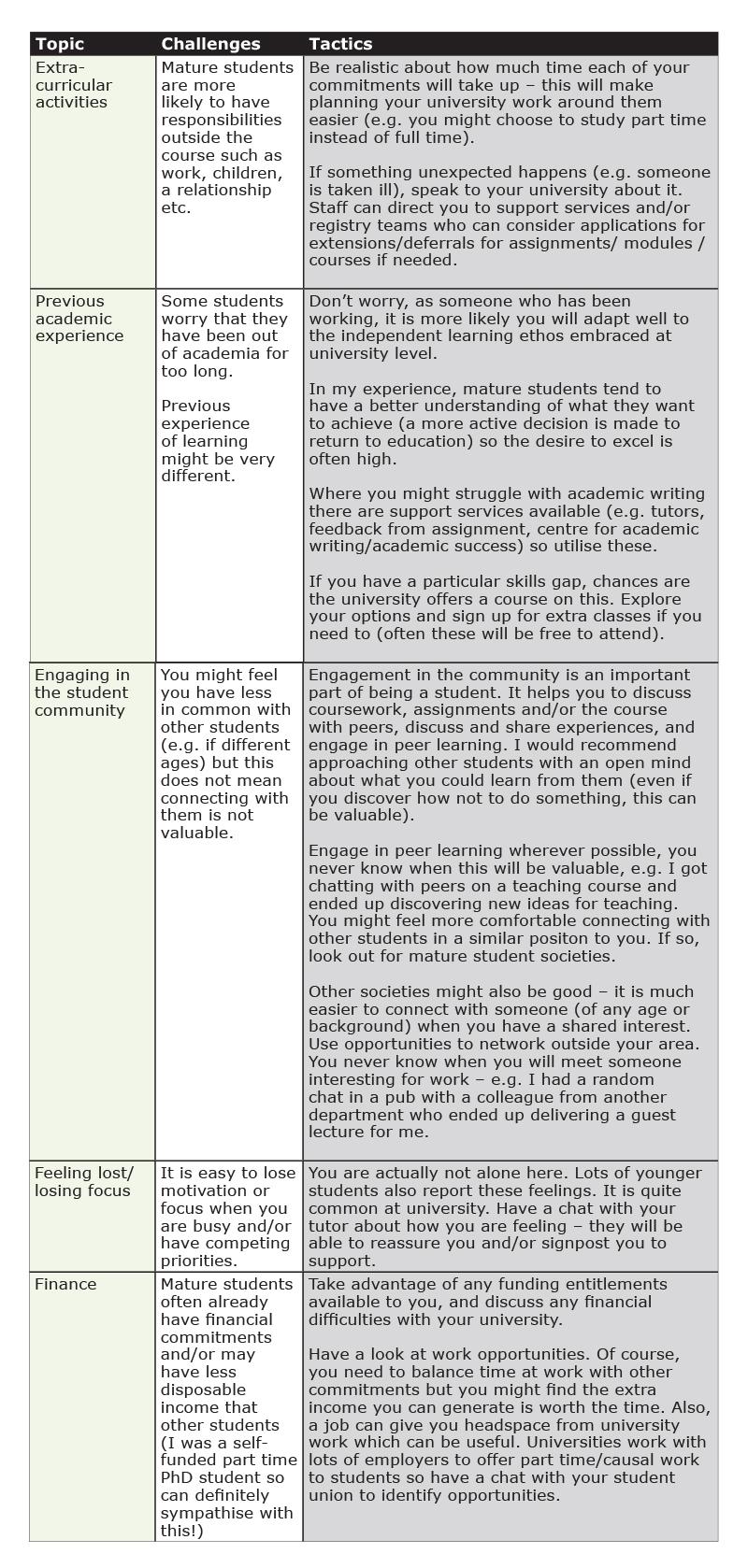Going to (or going back to) university seems to be becoming increasingly popular and I have lost count of the number of conversations I’ve had about the pros and cons of such a venture.
One of the major concerns / barriers to people embarking on a university course seems to be an anxiety about being a mature student. Whilst perhaps understandable, I hope in this article to reassure you that your experience of university can be just as valuable and exciting as a mature student as someone going straight from school. Before I start, it is perhaps worth considering what a “mature student” is. Technically this is anyone aged 21 or over. Ok, being 21 or over captures most of us, but I think we can agree that we don’t feel we have much in common with a 21 year old (also, a great way to make us all feel old!). So, what would our experiences as a (much older) mature student be like? Firstly, you might think that you’d be alone going back to university as a mature student but Higher Education Statistics Agency (HESA) data from 2015/16 shows that a substantial proportion of students are aged 30 or over - 6% of full time undergraduates and almost 50% of part time undergraduates studying for their first degree. This increases to 23% and 62% respectively when looking at other undergraduates, and to 23% and 67% respectively when considering postgraduate courses. Ok, 30 is still quite young but I, for one, feel better thinking about mature students as 30+ rather than 21+ (I can at least pretend to be young….!).
Why go back to university?
There are lots of reasons why you might choose to go back to University (or enrol on vocational courses). This might be preparation for a career change or to develop your skills in your existing role to help you along the career path. Success after graduation is generally high with many people finding employment following completion of their degree - the HESA estimates this was at least 75% for undergraduates and 85% for postgraduates in 2014/151. Whatever your reason, I would argue that you need to understand why you have made this decision for yourself. The reason I say this is that university can be hard, especially if you have other commitments (e.g. work, family) and/or are struggling with finances. Holding onto the reasons why you are back in education will help you to overcome any challenges which come your way.
I don’t want to be the voice of doom (although I have several colleagues who will probably argue this is what I spend most of my time doing!), and I do believe university to be a worthwhile venture (I am a lecturer after all so my livelihood depends on me thinking it’s a good idea!). However, as the old proverb goes, to be forewarned is to be forearmed and so it is worth highlighting some of the issues which might come up to help you prepare for taking the plunge.
Challenges and tactics
Mature students face a range of challenges in education. However, these challenges are not unsurmountable and there is a lot of support in place to help you.
Conclusion
Whatever your reasons for going to university as a mature student, this should be a rewarding experience. Do your homework and make sure the institution and course are right for you. Work out your timescales and budgets in advance - for example, you might find a part time course will suit you better in terms of managing both time and money. Remember universities should be well accustomed to catering for the needs of mature students and they have support systems in place for you. However, the quality of this support can vary so I recommend checking what is available when you apply. Also, if possible, have a chat with other mature students already studying at the university you plan to attend - this will help you gain a realistic view of the mature student experience before you sign on the dotted line.
www.hesa.ac.uk/data-and-analysis/students/graduate-employment
Taking the plunge surviving university as a mature student By: Dr Amy Burrell
Amy holds a BSc in Applied Psychology, an MSc in Forensic Behavioural Science, and a PhD in Forensic Psychology. Amy is a Lecturer in Forensic Psychology at Coventry University and can be contacted on ac4705@coventry.ac.uk She was previously the Training Manager for Perpetuity Training who specialise in security training (see www.perpetuitytraining.com) and is also involved in the Crime Linkage International NetworK (C-LINK) (see www.crimelinkage.org)


